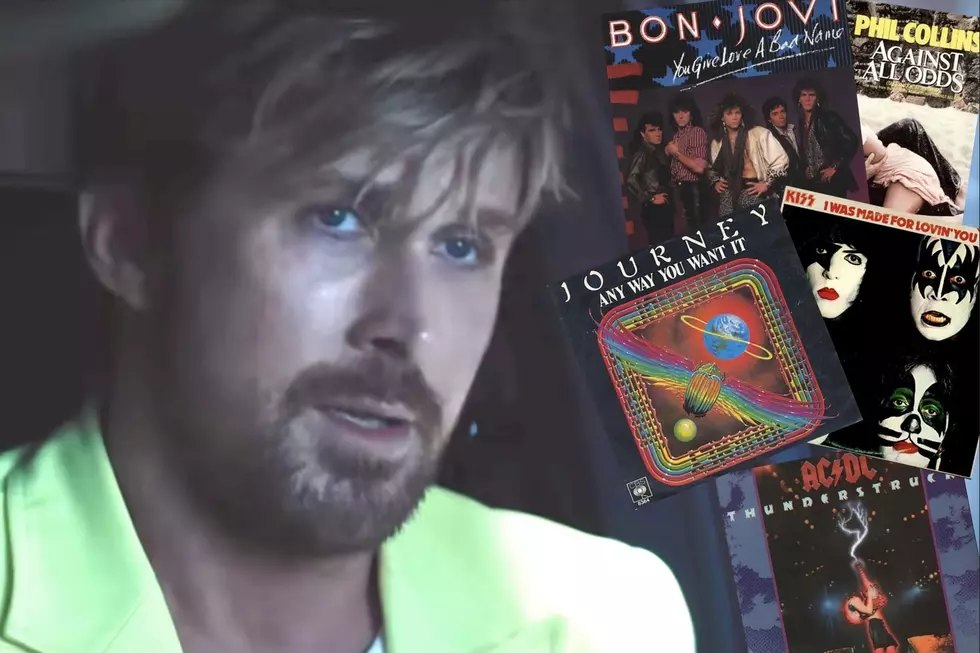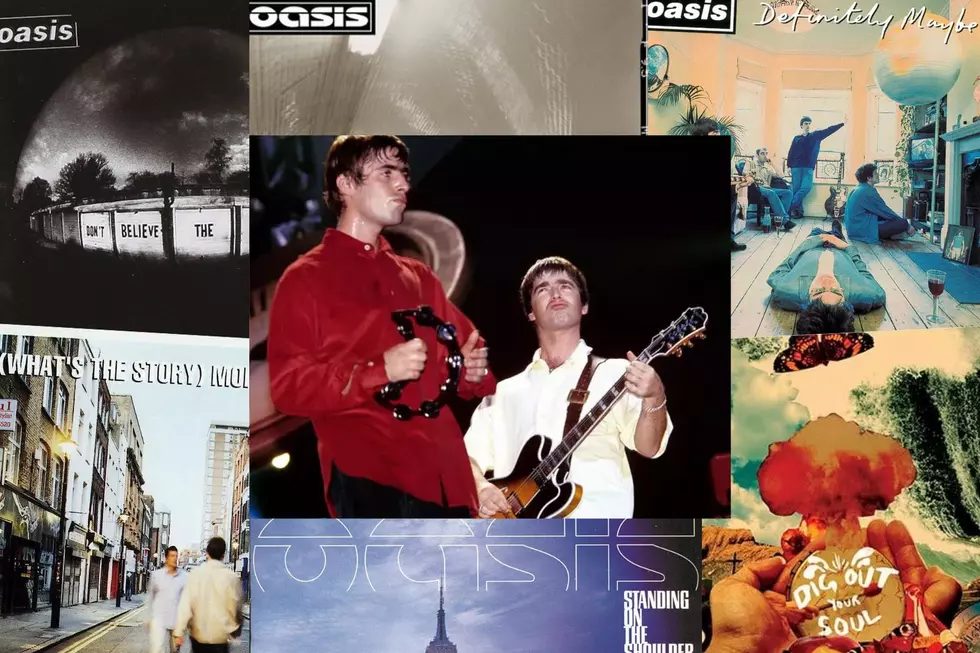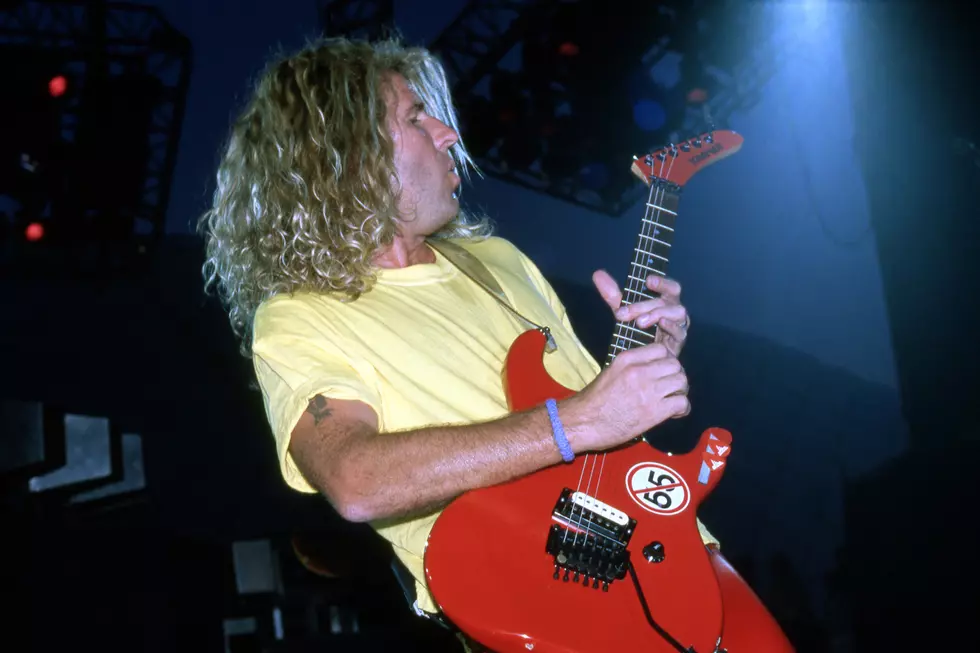
When Soundgarden and NIN Released Iconic Albums on the Same Day
Something was in the water on March 8, 1994 as Soundgarden and Nine Inch Nails each released groundbreaking albums on the same day.
Both groups had started to slowly infiltrate the mainstream years earlier. Soundgarden was one of the first grunge acts to sign with a major label, taking their heavy, gloomy sound to a wider audience beginning with 1991’s Badmotorfinger. That LP gave the band their first small taste of radio airplay, as “Outshined” reached No. 45 on the mainstream rock chart.
Meanwhile, Nine Inch Nails had fared a little better with their debut album, Pretty Hate Machine. The 1989 LP spawned a couple of singles – “Down in It” and “Head Like a Hole” – that reached No. 16 and 28, respectively.
In these early years, both acts had continued building fervent fanbases thanks to their electrifying live shows. Their careers would forever change thanks to albums released on March 8, 1994 – however they came about their trailblazing LPs in very different ways.
How Soundgarden Turned Tense Recording Sessions Into 'Superunknown'
By the summer of ‘93, Soundgarden had seen their Seattle contemporaries Nirvana and Pearl Jam rise to superstardom. While being happy for their friends, the Chris Cornell-led group also had a sense of “why not us?” The band hit the studio determined to evolve their sound. To that end, they opted for a producer they’d never worked with before, Michael Beinhorn. Almost immediately, they began butting heads.
“I’m quite positive that these guys didn’t really see the process of making the record from the same perspective that I did,” the producer recalled to Spin. “And I think that caused a lot of friction.”
“I think Superunknown had more tension than some of the records because it was a new guy we’d never worked with before who seemed to be really interested in trying to reinvent the wheel at every turn,” Cornell countered. “We were never a band that particularly needed a producer, anyway. We were always capable of making our own record.”
READ MORE: Top 30 Grunge Albums
Beinhorn challenged Soundgarden in every facet of the writing and recording process. His methods rubbed the musicians the wrong way – screaming fits in the studio were commonplace – but they also got results.
“It forced us to not rely on someone else and to become even closer-knit as a band and take responsibility for what it was we were doing,” Cornell admitted. “I think it might have more to do with the fact that we had this necessary adversary in the studio to pull us together as a group.”
Every member contributed to the songwriting on Superunknown. Cornell was credited on the most tracks with nine, but guitarist Kim Thayil (4), drummer Matt Cameron (3) and bassist Ben Shepherd (2) all made their songwriting presence felt.
“There were songs still being written during the recording process, so we were always tracking and learning new songs while we were working on other ones,” Cornell told Guitar Wold in 2014. “That process allowed us to experiment in the studio and tap more into that Pink Floyd side of the band. We were adding different things in different layers, and one of the things about Soundgarden is that everyone in the band is allowed to do that.”
Watch Soundgarden's Video for 'Spoonman'
Inspiration came from a variety of places. “Spoonman,” originally written for the 1992 film Singles, was about a locally famous street musician. Cornell delved into his inner psyche for “The Day I Tried to Live,” a tune about his desire to be “closed off and reclusive.” Still, one track felt elevated from the rest.
"'Black Hole Sun' was written in a car when I was driving home from the studio one night,” Cornell recalled. “Pretty much everything that you hear was written in my head.”
“It’s a beautiful, beautiful song,” Beinhorn noted. “I remember when I got the demo for it. I got an immediate visceral reaction from it, like it just hit me. I felt like a house had dropped on me. I thought to myself, “This is the kind of thing that a person in my position waits years and years to basically have dropped in his lap.”
The rest of the band agreed. Shepherd likened the eclectic nature to Stevie Wonder and recognized it as a turning point for the group. “It was like, now we’re really diverse; now we’re really stretching our abilities and styles,” the bassist explained. “We’re not just this one stupid fucking grunge band.”
Watch Soundgarden's Video for 'Black Hole Sun'
Superunknown debuted at No. 1 on the Billboard 200, selling 310,000 copies in its opening week. It would go on to sell more than 6 million copies in the U.S. and earn Soundgarden two Grammys. Meanwhile, “Black Hole Sun” became the biggest hit of the band’s career.
“A lot of it was just timing,” Cornell later assessed. “Everything was changing at the time– radio was evolving and the perspective of the listening audience was changing. The age of the audience too – a new generation was maturing and was ready for a band like us. So I think it was the perfect time for that record."
When Nine Inch Nails Took Depravity to the Mainstream on 'The Downward Spiral'
While Soundgarden was peddling their wares in Seattle, Trent Reznor had set up shop in a far different locale. The Nine Inch Nails leader moved into the Los Angeles home where actress Sharon Tate had been murdered by members of the Manson Family in 1969. There, he crafted material for what would become The Downward Spiral.
“It was a breeding ground for ideas,” drummer Chris Vrenna recalled to Metal Hammer. “It took a long time, but everything flowed naturally and we knew we were on to something. Our producer Flood was living with us, we were in Los Angeles, and we were able to explore the whole scene and do rock star stuff.”
READ MORE: Top 30 American Classic Rock Bands of the '90s
Reznor’s vision was an album that covered such dark topics as addiction, depression, nihilism and sadomasochism. The album was to showcase its maker in the rawest state possible.
"The Downward Spiral was a descent," Reznor later explained to Kerrang, "shedding skin, taking a layer off and analyzing it."
Considering the subject matter, commercial success was far from Reznor’s mind. The rocker, who had been hailed as the leader of a new sub-genre dubbed “industrial,” just wanted to make something shickingly honest.
Listen to 'Hurt' From 'The Downward Spiral'
“I thought I quite intentionally may have shot myself in the foot commercially,” he admitted. “I didn’t do that just to fuck myself up, either. It’s what popped out of my head and was the strongest statement I could make.”
Using David Bowie’s Berlin Trilogy and Iggy Pop’s The Idiot as a guide, Reznor delved deep into his core. Even when the rocker created something with the potential for mass appeal, he found a way to pervert it.
“We were all working on something one night and Trent came in the next morning and showed us the lyrics of ‘Closer’ for the first time,” Vrenna recalled. “Our producer, Flood, and I looked at each other and I told Trent, ‘Well, you had the pop single for the record until you said ‘fuck’ in every line of the chorus.’ Trent started laughing and he said, ‘I know.’ He did it on purpose because he didn’t want, necessarily, to have such an overt pop song.”
Watch Nine Inch Nails' Video for 'Closer'
Then, the most unlikeliest of things happened: The Downward Spiral became a hit.
Drawn to the album’s craftsmanship, technological wizardry and unrelenting power, audiences flocked to buy it. The LP debuted at No. 2 on the Billboard 200, behind only Superunknown. Meanwhile, “Closer” became a worldwide hit – this despite Reznor’s assertion that the album had no “obvious radio and MTV songs."
"I really like The Downward Spiral," the singer later remarked, looking back on his masterpiece. "It was hard to do and it beat the shit out of me, but I'm proud of it."
Birthday Buddies: Albums Released on the Same Day
More From Ultimate Classic Rock









